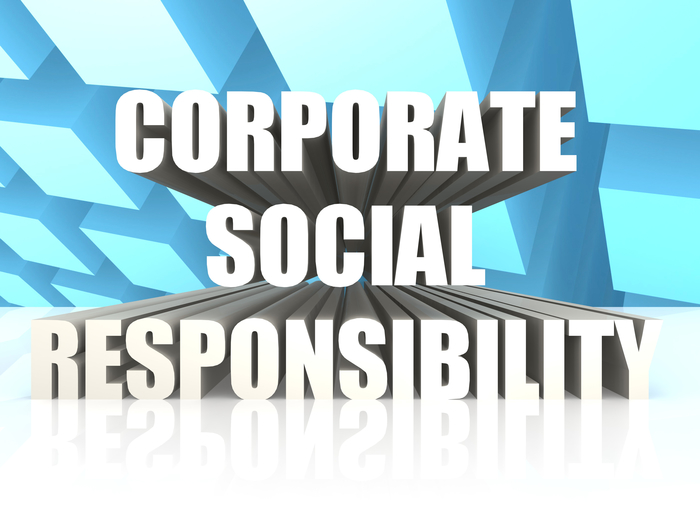
Consumers increasingly don't accept unethical business practices or organisations who act irresponsibly. Advances in social media, which has given many a voice, means that negative or destructive practices quickly fuel conversations online. This fuel only adds to the fire of irreputable business practices, making organisations more accountable for their actions like never before.
As such, Corporate Social Responsibility shouldn't be viewed as a drain on resources. Carefully implemented CSR policies can help your organisation in a variety of ways. For example, it can win you new business opportunities, increases your consumer retention, helps develop and enhance your consumer relationships, as well as with the rest of your network. It improves your ability to attract, retain, and maintain a happy and motivated workforce, and can differentiate your business from other competitors, which helps provides access to investment and funding opportunities.
CSR is not going to solve the world’s problems. That said, CSR is a way for companies to improve your business reputation and standing can generate a lot of positive publicity and media opportunities, benefiting themselves while also benefiting society.
So what benefits can CSR have on your business when enacted professionally?
Innovation
In the context of CSR, innovation is a huge benefit to a company and society. By using CSR, and the 'restrictions' that come with it, it will force your company to create innovative designs to complex situations. These solutions will often prove to be both sustainable and beneficial, which leads to:
Cost savings
One of the easiest places for a company to start engaging in sustainability is to use it as a way to cut costs. Whether it’s using less packaging or less energy, these savings add up quickly. When your company cuts its costs, it can start actively using the extra funds to provide more sustainable approaches to company issues. Cutting the extra weight will allow you to push towards greater production, higher training for your employees, better wages, or to create a buffer. In creating a buffer, your company will be able to engage in:
Long-term thinking
CSR is an effort to look at the company’s long-term interest and to ensure the continuing sustainable actions. Often, CSR will always lead to greater and more sustainable actions. It is a shift from worrying about the next fiscal quarter’s financial results to the impact that your business decisions today have on financial (and social) results ten years from now.
Brand differentiation
In the past, brand differentiation was one of the primary reasons companies embraced CSR. Companies were able to find their voice and incorporate the company’s values into their business model, and further your agenda. However, as CSR has become more commonplace, using it to differentiate your brand is getting harder to do. Often, large companies who own large portions of the market share of their respective markets adopt similar, although slightly different, approaches to CSR. In the end, although neither company is necessarily going to see strong differentiation benefits, the diminishing returns on brand differentiation is a sign that CSR is taking hold and is not just a fad. This means that using and maintaining CSR policies will become more a thing of company survival, rather than a short term policy to improve your social image.
Customer engagement
Regardless of this, it is important to remember that incorporating CSR should not be able showing how special your company is: it should be a matter of improve your company so that it feels special. Using CSR can help you engage with your customers in new ways. Since the message is about something “good,” it can often be an easier way to talk to your customers. This is an underused tool for business-to-business company communication.
Employee engagement
Along similar lines, if your own employees don’t know what’s going on within your organisation, you’re missing an opportunity. Using your new sustainability-centric which can be generated by CSR to activate employees in community service focused activities in line with the company’s CSR priorities.
To be clear, these are the reasons why most companies should enact CSR. Many of these facets are interlinked, which makes it difficult to take a pick-and-choose approach. In truth, companies often become involved in CSR for different reasons, but none of them go into CSR under the pre-text and implementing these policies will be the cure-all to all of their problems. Certainly, it does start to move you and your company more in line with an economy that cares about its employees, and those who use their products and services.
